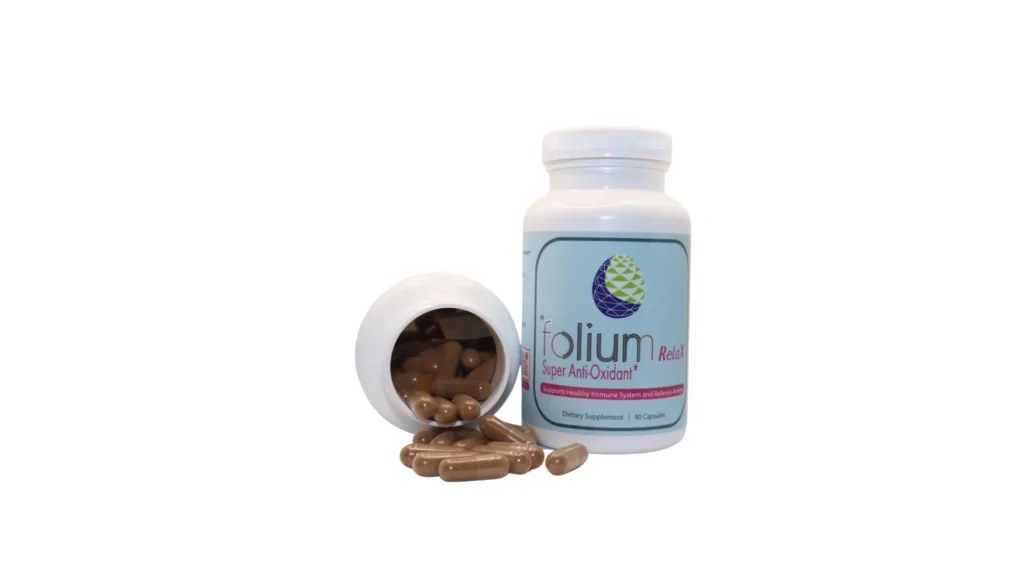Your cart is currently empty!

Pine Bark Extract: Nature’s Hidden Gem for Health
Table of Contents
Pine bark extract, derived from the bark of various pine tree species, has emerged as a natural supplement with a wide array of health benefits. This unassuming ingredient has captured the attention of researchers and health enthusiasts alike, thanks to its potent blend of antioxidants and bioactive compounds. As we delve deeper into the world of natural remedies, it becomes clear that pine bark extract is a hidden gem that deserves a closer look. Its versatility and effectiveness in promoting overall well-being make it a valuable addition to any health regimen.
In this article, we will explore the various aspects of pine bark extract, from its origins and composition to its numerous health benefits, backed by scientific research. Join us on this journey as we uncover the remarkable potential of this nature’s gift and learn how it can support our quest for optimal health and vitality.
What is Pine Bark Extract?
Pine bark extract is a natural supplement derived from the bark of several species of pine trees, primarily the French maritime pine (Pinus pinaster). The bark is carefully harvested and undergoes a specialized extraction process to obtain a concentrated form of the active compounds. The most notable of these compounds are proanthocyanidins, a class of potent antioxidants that belong to the bioflavonoid family. These proanthocyanidins are responsible for many of pine bark extract’s health benefits, as they possess a unique structure that allows them to effectively neutralize free radicals and promote overall cellular health.
In addition to proanthocyanidins, pine bark extract contains a complex blend of other beneficial compounds, including phenolic acids, flavonoids, and organic acids. This synergistic combination of bioactive ingredients contributes to its wide-ranging effects on various systems in the body.
The extraction process plays a crucial role in preserving the potency and integrity of these compounds. Advanced techniques, such as water-based extraction and standardization, ensure that the final product retains a consistent and optimal concentration of the active ingredients.
When compared to other natural supplements, pine bark extract stands out for its unique composition and the breadth of its potential health applications. While substances like grape seed extract and green tea extract also contain proanthocyanidins, the specific blend found in pine bark extract has been extensively studied and shown to offer distinctive advantages. As we explore the various health benefits of pine bark extract in the following sections, it will become evident that this natural remedy is truly a hidden gem in the world of wellness.
Antioxidant Properties

One of the most significant attributes of pine bark extract is its exceptional antioxidant properties. Antioxidants play a vital role in maintaining overall health by combating oxidative stress, a condition characterized by an imbalance between free radicals and the body’s ability to neutralize them. Free radicals are unstable molecules that can cause damage to cells, proteins, and DNA, contributing to the development of various chronic diseases and accelerating the aging process.
Pine bark extract’s potent antioxidant capabilities stem from its high concentration of proanthocyanidins. These compounds have a unique molecular structure that allows them to scavenge and neutralize free radicals effectively. By doing so, they help protect cells from oxidative damage and maintain their optimal function.
Numerous studies have highlighted the antioxidant effects of pine bark extract. For instance, research has shown that pine bark extract has a greater antioxidant capacity than vitamin C and vitamin E, both of which are recognized for their antioxidant properties. Additional research has demonstrated that pine bark extract can significantly lower oxidative stress markers in humans, suggesting its potential in preventing various diseases.
The implications of pine bark extract’s antioxidant properties are far-reaching. By reducing oxidative stress, it may help lower the risk of various chronic conditions, such as cardiovascular disease, neurodegenerative disorders, and premature aging. Additionally, the antioxidant effects of pine bark extract can support the body’s natural defenses against environmental stressors, such as pollution and UV radiation.
Furthermore, the antioxidant benefits of pine bark extract extend beyond its direct scavenging of free radicals. It has been shown to enhance the activity of the body’s own antioxidant enzymes, such as superoxide dismutase and glutathione peroxidase. By boosting these endogenous antioxidant systems, pine bark extract provides a multi-faceted approach to combating oxidative stress.
As we continue to uncover the various health benefits of pine bark extract, it becomes clear that its potent antioxidant properties form the foundation for its wide-ranging effects on human health. By protecting cells from oxidative damage and supporting the body’s natural defenses, pine bark extract offers a powerful tool in the pursuit of optimal well-being and disease prevention.
Cardiovascular Health Benefits

Pine bark extract has garnered significant attention for its potential to support cardiovascular health. The cardiovascular system, comprising the heart and blood vessels, plays a critical role in delivering oxygen and nutrients to every cell in the body. Maintaining the health and function of this system is essential for overall well-being and longevity.
One of the key mechanisms through which pine bark extract promotes cardiovascular health is by improving endothelial function. The endothelium is the inner lining of blood vessels, responsible for regulating blood flow and maintaining vascular tone. Pine bark extract has been shown to enhance the production of nitric oxide, a molecule that helps relax and dilate blood vessels, thereby improving circulation and reducing blood pressure.
Additionally, pine bark extract exhibits anti-inflammatory and anti-platelet properties, which further contribute to its cardioprotective effects. Inflammation and platelet aggregation are underlying factors in the development of atherosclerosis, a condition characterized by the buildup of plaque in the arteries. By reducing inflammation and preventing excessive platelet clumping, pine bark extract helps maintain the integrity of the blood vessels and reduces the risk of cardiovascular events.
Several clinical studies have highlighted the cardiovascular benefits of pine bark extract. One randomized, double-blind, placebo-controlled trial found that pine bark extract significantly improved endothelial function and reduced oxidative stress in patients with coronary artery disease. Another research effort indicated that pine bark extract could lower blood pressure and improve blood flow in individuals with hypertension.
Furthermore, pine bark extract has been effective in managing other cardiovascular risk factors, such as high cholesterol and blood sugar levels. Research has shown that supplementation with pine bark extract led to a significant reduction in total cholesterol and low-density lipoprotein (LDL) cholesterol, which is often referred to as “bad” cholesterol. Additionally, studies have demonstrated that pine bark extract improved glycemic control and insulin sensitivity in individuals with type 2 diabetes.
These findings highlight the multifaceted approach through which pine bark extract supports cardiovascular health. By improving endothelial function, reducing inflammation, and managing various risk factors, this natural supplement offers a comprehensive strategy for maintaining a healthy heart and blood vessels. As research continues to unravel the mechanisms behind pine bark extract’s cardioprotective effects, it becomes increasingly clear that this hidden gem from nature can be a valuable ally in the fight against cardiovascular disease.
Cognitive Function and Brain Health

In addition to its cardiovascular benefits, pine bark extract has shown remarkable potential in supporting cognitive function and brain health. The brain is a complex organ that requires a constant supply of oxygen, nutrients, and protection from oxidative stress to function optimally. As we age, the brain becomes increasingly susceptible to cognitive decline and neurodegenerative diseases, making it crucial to adopt strategies that promote brain health.
Pine bark extract’s neuroprotective properties can be attributed to its potent antioxidant and anti-inflammatory effects. The brain is particularly vulnerable to oxidative stress due to its high metabolic activity and relatively low antioxidant defenses. The proanthocyanidins in pine bark extract can cross the blood-brain barrier and exert their protective effects directly on brain cells, shielding them from the damaging effects of free radicals.
Numerous studies have explored the cognitive-enhancing effects of pine bark extract. Research involving a randomized, double-blind, placebo-controlled design showed that pine bark extract supplementation improved attention, working memory, and executive function in healthy older adults. Another study indicated that pine bark extract could enhance cognitive performance and reduce mental fatigue in students during demanding academic periods.
The potential benefits of pine bark extract also extend to age-related cognitive decline and neurodegenerative diseases. Research has shown that pine bark extract supplementation improved cognitive function and slowed the progression of mild cognitive impairment, a precursor to Alzheimer’s disease. Additionally, pine bark extract has been found to protect brain cells from the toxic effects of amyloid-beta, a protein involved in the development of Alzheimer’s disease.
The neuroprotective effects of pine bark extract may also have implications for other neurological conditions, such as Parkinson’s disease and traumatic brain injury. By reducing oxidative stress, inflammation, and supporting the integrity of brain cells, pine bark extract offers a promising approach to promoting brain health and resilience.
As research continues to uncover the mechanisms behind pine bark extract’s cognitive benefits, it becomes increasingly evident that this natural supplement can play a vital role in optimizing mental performance and protecting the brain from age-related decline. By incorporating pine bark extract into a comprehensive brain health strategy, individuals may be able to enhance their cognitive function, maintain mental clarity, and reduce the risk of neurodegenerative diseases.
Skin Health and Anti-Aging Effects

Pine bark extract has gained recognition for its remarkable effects on skin health and its potential to combat the signs of aging. The skin, being the body’s largest organ and the first line of defense against external stressors, requires adequate nutrition and protection to maintain its youthful appearance and function.
One of the key mechanisms through which pine bark extract promotes skin health is by stimulating collagen synthesis. Collagen is a vital protein that provides structure and elasticity to the skin. As we age, collagen production naturally declines, leading to the appearance of fine lines, wrinkles, and sagging skin. Pine bark extract has been shown to boost collagen synthesis, thereby improving skin firmness and reducing the visible signs of aging.
In addition to its effects on collagen, pine bark extract also offers significant protection against UV radiation, a major contributor to skin damage and premature aging. The antioxidants in pine bark extract, particularly proanthocyanidins, have been shown to scavenge free radicals generated by UV exposure and minimize the resulting oxidative stress. This protective effect helps prevent the breakdown of collagen and elastin, the proteins responsible for maintaining skin’s youthful appearance.
Several studies have demonstrated the dermatological benefits of pine bark extract. Research involving a randomized, double-blind, placebo-controlled design showed that oral supplementation with pine bark extract significantly improved skin elasticity, hydration, and smoothness in women exhibiting mild to moderate signs of aging. Additionally, another study indicated that topical application of pine bark extract reduced the depth of wrinkles and enhanced overall skin complexion.
Moreover, pine bark extract has shown promise in managing skin conditions such as hyperpigmentation and melasma. These conditions are characterized by the overproduction of melanin, the pigment that gives color to the skin. The antioxidant and anti-inflammatory properties of pine bark extract help regulate melanin production and promote a more even skin tone.
The skin health benefits of pine bark extract extend beyond its anti-aging effects. Its antioxidant and anti-inflammatory properties also make it useful in managing various skin conditions, such as acne, eczema, and psoriasis. By reducing oxidative stress and inflammation in the skin, pine bark extract can help alleviate the symptoms associated with these conditions and promote overall skin health.
As research continues to validate the dermatological benefits of pine bark extract, it becomes clear that this natural supplement is a valuable tool in the pursuit of healthy, youthful-looking skin. By incorporating pine bark extract into skincare routines and dietary regimens, individuals can harness the power of this hidden gem to maintain radiant, resilient skin throughout the aging process.
Other Potential Health Benefits

While the antioxidant, cardiovascular, cognitive, and skin health benefits of pine bark extract have been extensively studied, this versatile supplement has shown promise in several other areas of health as well.
One such area is immune system support. Pine bark extract’s potent antioxidant and anti-inflammatory properties may help bolster the body’s natural defenses against pathogens and external stressors. By reducing oxidative stress and inflammation, pine bark extract can contribute to a more efficient and balanced immune response.
Pine bark extract has also been investigated for its potential to promote joint health and reduce inflammation. Chronic inflammation is a common underlying factor in various joint conditions, such as osteoarthritis and rheumatoid arthritis. The anti-inflammatory compounds in pine bark extract may help alleviate joint pain, stiffness, and swelling, thereby improving overall joint function and quality of life.
Another area where pine bark extract shows promise is in blood sugar regulation and diabetes management. Several studies have indicated that pine bark extract may improve insulin sensitivity and glucose uptake, two critical factors in maintaining healthy blood sugar levels. By supporting proper glucose metabolism, pine bark extract may aid in the prevention and management of type 2 diabetes.
Lastly, pine bark extract has been explored for its potential benefits in respiratory health and allergy relief. The antioxidant and anti-inflammatory properties of pine bark extract may help reduce the severity of allergic reactions and improve respiratory function in individuals with conditions such as asthma and seasonal allergies.
While more research is needed to fully understand the mechanisms and extent of pine bark extract’s benefits in these areas, the initial findings suggest that this natural supplement may offer a wide range of health advantages beyond its well-established effects on antioxidant status, cardiovascular health, cognitive function, and skin health.
Safety and Dosage
The recommended dosage of pine bark extract varies depending on the specific health condition being addressed and the individual’s age and overall health status. In general, doses ranging from 50 to 450 mg have been used in clinical studies.
To ensure safety and optimal results, it is crucial to choose high-quality pine bark extract supplements from reputable manufacturers.
Conclusion: Pine Bark Extract
Pine bark extract is indeed nature’s hidden gem for health, offering a wide array of benefits that span from antioxidant protection and cardiovascular support to cognitive enhancement and skin rejuvenation. As we have explored throughout this article, the unique blend of proanthocyanidins and other bioactive compounds found in pine bark extract work synergistically to promote overall well-being and combat various health challenges.
The potent antioxidant properties of pine bark extract form the foundation for its diverse health benefits. By neutralizing free radicals and reducing oxidative stress, this natural supplement helps protect cells from damage and supports the body’s natural defenses against disease. These antioxidant effects translate into tangible benefits for cardiovascular health, brain function, skin health, and beyond.
Moreover, pine bark extract’s ability to improve endothelial function, reduce inflammation, and regulate key physiological processes makes it a valuable tool in the prevention and management of various chronic conditions. From promoting healthy aging and cognitive vitality to supporting joint health and respiratory function, the potential applications of pine bark extract are vast and far-reaching.
In the end, pine bark extract serves as a powerful reminder of the wisdom and generosity of nature, offering us a simple yet profound solution to many of the health challenges we face in the modern world. By embracing this hidden gem and integrating it into our wellness routines, we can tap into the restorative and protective powers of the natural world, paving the way for a healthier, more vibrant future.
Unlock the power of nature with Folium pX, your partner in achieving optimal health and vitality through our scientifically formulated antioxidant supplements.
Further Reading
Here are some valuable resources for those interested in exploring the benefits of natural supplements further:
- The Role of Natural Supplements in Health and Disease Prevention: Discover how supplements like vitamins and minerals can play a crucial role in maintaining health and preventing diseases. Read more about the benefits of dietary supplements on the FDA’s page.
- Dietary Supplements: What You Need to Know: The U.S. Department of Health & Human Services provides insights into the effectiveness and safety of various dietary supplements. Explore the comprehensive guide by the NIH.
Leave a Reply